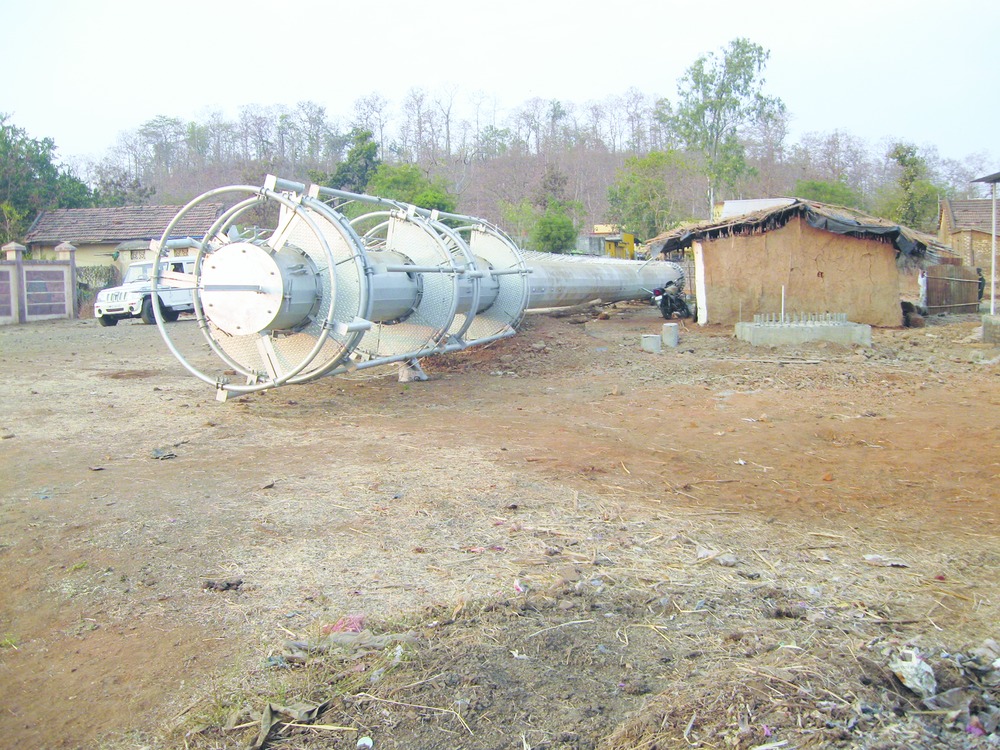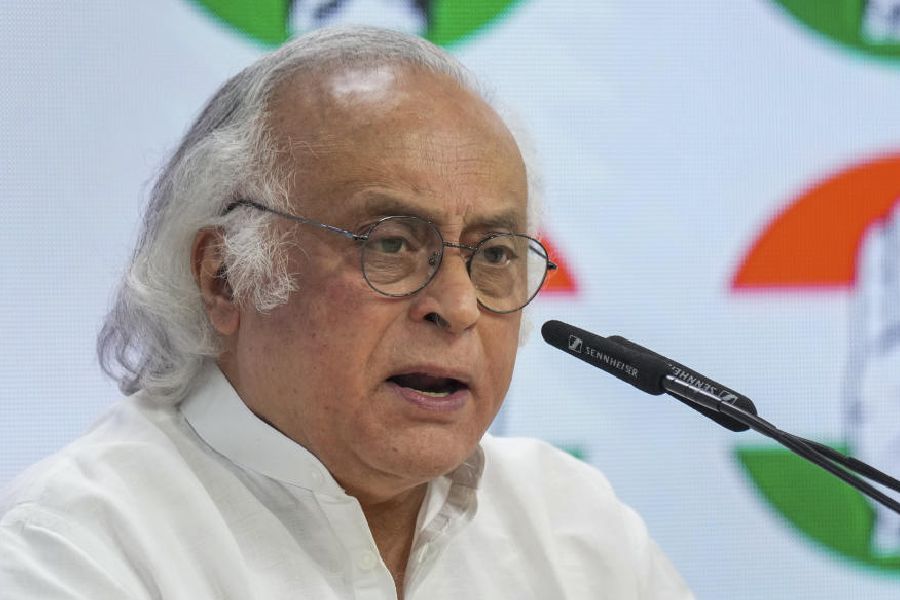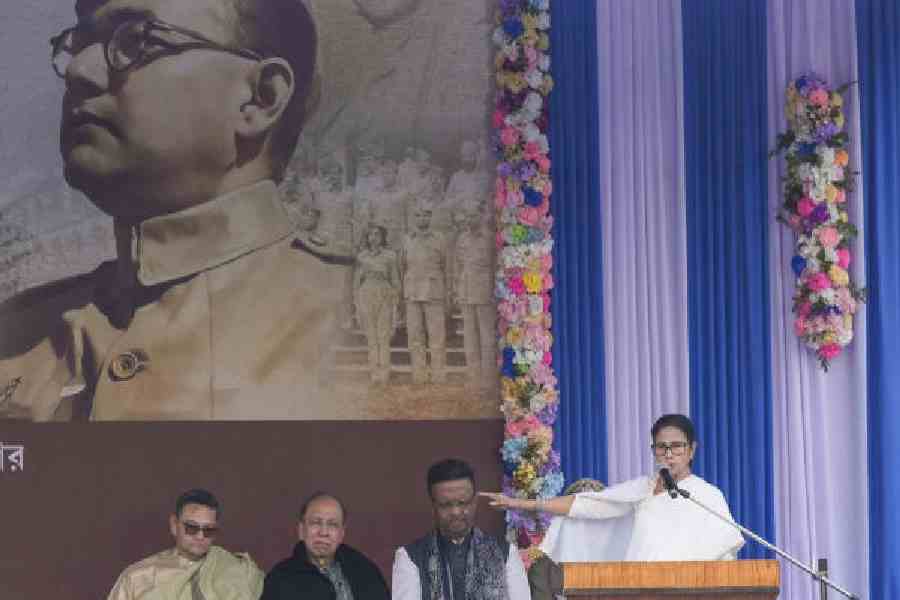

On the face of it, there is nothing "smart" about it. On the contrary, the phrase "back of beyond" seems to have been coined for the tiny Maharashtra village.
But Harisal, about 270km from Nagpur, is going to be India's "first smart village". The state and central governments have big plans for the hamlet, located in a hilly area deep inside the Melghat Tiger Reserve and inhabited by 2,000 people, mostly Korku Adivasis. They plan to provide each of the 406 households with solar electricity and Internet connections.
Within two months, all this will reach the village in Amravati district, officials say. But, right now, you need to undergo a three-hour bone-rattling, heart-stopping drive from Amravati town through numerous hair-pin bends and steep gradients to reach the village.
So far, Harisal has been known mainly for its malnutrition deaths. Now the words "digital" and "smart" are on everybody's lips - right from unlettered villagers to the few who have been to school.
The government wants to introduce the Internet and computers to the villagers, mostly farmers, to put the village on the digital map. On the agenda are cashless markets, WiFi zones, mobile connectivity, health cards and telemedicine facilities.
"It will help our children the most as they will be able to access Internet facilities. Computers will lead to speedier work at the gram panchayat office and the Internet will help us connect with cities," holds deputy sarpanch Ganjat Babuji Gayen.
A brand new office on the ground floor of the panchayat office with the words "Office Digital Village" emblazoned across it in bright letters is the first sign of change. Next to it is a Bank of Maharashtra ATM, which has not yet started dispensing cash.
The Maharashtra government, with Microsoft, has adopted the village under the Prime Minister's Digital India initiative. Fringed by forests, the remote village will be the model for some 50 "smart villages" in the state, the government says.
"The village was selected by the chief minister because it is the most inaccessible part of the state where there is a crying need for such facilities," says Amravati district collector Kiran Gitte.
Harisal had its first encounter with fame last September, when Gitte, other district officials and Microsoft India national technology officer Prashant Shukla visited the village.
"To make a digital city is easy but to make a digital village in a tribal area is very challenging," Gitte says.
Indeed, the challenges are many. Malnutrition is a serious problem, as is infant mortality. Though Harisal has a primary health centre (PHC) and sub-centres, there are not enough doctors.
The government now wants to solve the problem by setting up a telemedicine facility at the PHC which will help connect the village with specialists in hospitals in Amravati, Mumbai and Pune. "Around 34 super-speciality doctors will be available," Gitte says.
A mobile application is expected to guide social workers by providing real-time data on the number of antenatal women and malnourished children. "This will help connect PHCs with the main health centre in the district," Dr Siddhant Verne, a doctor involved with the project, states.
Eye disease, often caused by malnutrition, will be tackled, too. The LV Prasad Institute of Eye Care, Hyderabad, has agreed to set up an eye care centre at Harisal with trained eye doctors.
Another serious problem is that of power. Though a few households have electricity connections, power cuts - stretching up to 14-18 hours daily - are a perennial problem in Harisal, affecting the functioning of the PHC, gram panchayat office and the lone Reliance mobile tower that provides 2G services.
A 132-KV line is being installed from neighbouring Madhya Pradesh to tackle the power problem, says Arun M. Ranvir, district informatics officer, National Informatics Centre, Amravati. Arrangements are being made for solar-based power supply too.
For mobile connectivity, a mobile tower is being erected and optical fibre lines are being laid. Microsoft India is bringing in white space technology, a super WiFi service which will be put into effect for the first time in the country. "We plan to instal a wireless access point on the gram panchayat building so that the whole village is covered by WiFi," Ranvir says.
The government also plans to provide mobile banking services to Harisal. Debit cards have been provided to account holders.
"But what will we do with ATM cards when we don't have any money in the bank? There are no avenues for employment here. We cannot go to the city as it is far away. We also cannot do farming as the few crops that we can grow here are cereals that are eaten up by wild animals. Will Digital India bring us money," asks villager Sukant Chetri Durbe.
Good point. The government believes it has the answer to that. It is setting up a skill development centre with the help of self-help groups to generate employment in the village where most people farm.

A multipurpose centre will function like a cyber cafe. A resource person will provide information related to agriculture and other issues. Students will also be able to attend lectures through video conferencing, says Chetan Hiwanj, block development officer, Melghat region.
The plans, indeed, are grand. A village level centre will provide services such as delivery of certificates of birth, death and income. Under an e-panchayat services project, information related to the panchayat will be provided. Ration cards will be digitised.
The digital initiative will, among other things, focus on providing Internet facilities to schools. Students and teachers will be given online training. Computer labs are being set up, along with a digital library with the help of Sant Gadge Baba Amravati University.
Gitte believes that once the projects are in place in March, Harisal will be the model for other "smart" villages.
"Smart villages" are on the agenda of many state governments, including Karnataka, Tamil Nadu, Madhya Pradesh and Haryana. Companies and banks are doing their bit too. ICICI Bank has launched a digital village project in Akodara in Gujarat; Intel, the chip maker, has set up a Digital India Unnati Kendra at Nadimpalle village in Telangana; Punjab National Bank has created the PNB Digital Village at Dudhike village in Punjab's Moga district.
But not everybody is excited about the proposals to connect villages. N. Viswanadham, emeritus professor and senior scientist, Indian Institute of Science, Bangalore, believes that companies are interested in the projects because they spell a huge new business opportunity. They also meet the goals of corporate social responsibility, he says.
Sarpanch Bhau Chipu Dhikar, however, hopes the project translates into a better life for villagers. "Perhaps our younger generation will benefit from these digital initiatives," he says. "The changes have come in late but better late than never."











